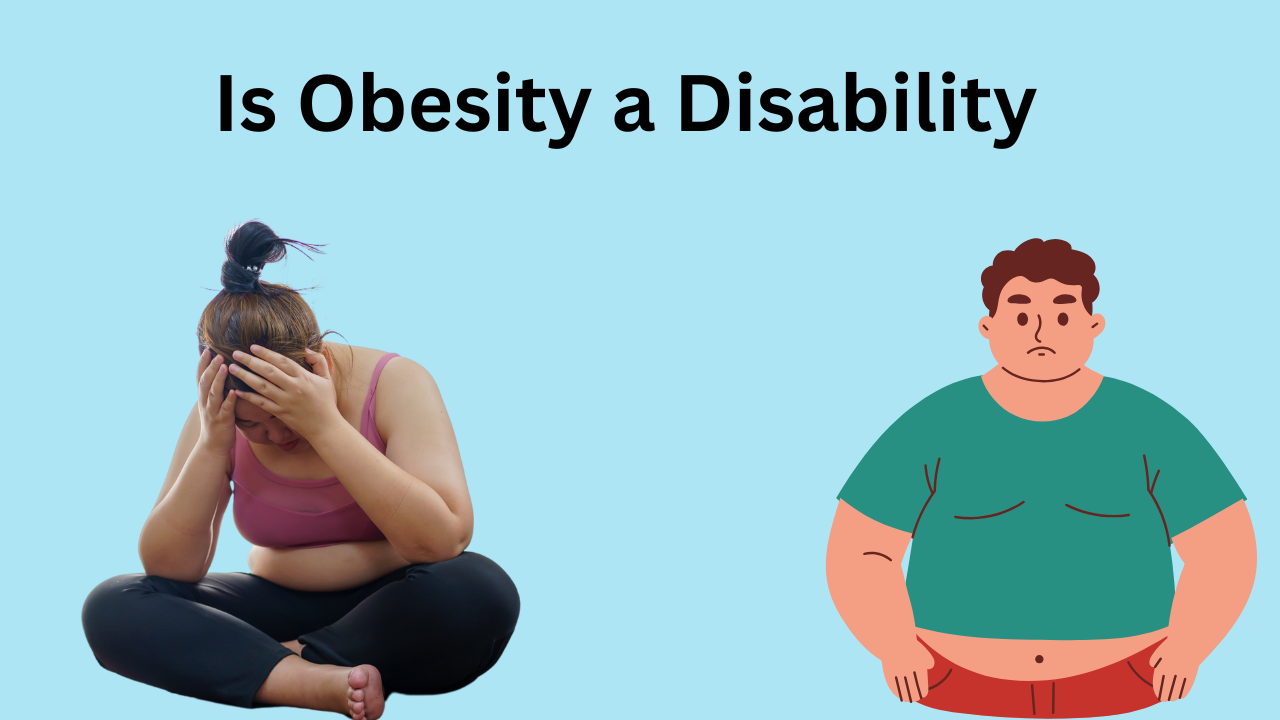The classification of obesity as a disability is a contentious issue, raising questions about healthcare, legal protections, and societal attitudes. Understanding whether obesity fits the definition of a disability involves examining its impact on daily functioning, how it’s treated in legal frameworks, and the broader implications of such recognition.

What Is Obesity?
Obesity refers to a medical condition where excess body fat accumulates to a degree that may harm health. This condition is often measured using the Body Mass Index (BMI), with a BMI of 30 or above indicating obesity. Factors contributing to obesity include genetics, hormonal imbalances, lifestyle choices, and socioeconomic conditions.
While obesity can lead to serious health conditions such as diabetes, cardiovascular diseases, and joint problems, its influence extends beyond physical health, often affecting mental well-being and quality of life.

Legal Perspectives on Obesity
Globally, legal systems differ in addressing whether obesity qualifies as a disability. In some jurisdictions, it is recognized under specific conditions:
United States: Under the Americans with Disabilities Act (ADA), obesity is not automatically classified as a disability. However, severe cases that impair daily functioning or stem from a medical condition may qualify for protections. Courts have increasingly acknowledged obesity-related cases when substantial limitations are evident.
European Union: A 2014 ruling by the Court of Justice of the European Union determined that severe obesity could qualify as a disability if it hinders a person’s professional participation.
Global Variations: Many countries lack a clear stance on this issue, leaving the decision to case-by-case legal interpretations.

Disability and Obesity
Disability is typically defined as a physical or mental impairment that significantly restricts one or more major life activities. For individuals with severe obesity, limitations such as reduced mobility, chronic pain, or difficulty performing everyday tasks may align with this definition. However, not all cases of obesity cause such impairments, making its classification as a disability context-dependent.

Societal Stigma and Its Role
One significant aspect of this debate is societal perceptions of obesity. Many view it as a condition resulting from personal choices, leading to stigma and discrimination. Recognizing obesity as a disability could help address this bias, fostering greater empathy and understanding.
However, critics worry that labeling obesity a disability might discourage individuals from adopting healthier lifestyles. Balancing these concerns is key to shaping policies that promote both compassion and accountability.
Implications for Employment and Human Rights
Classifying obesity as a disability would have wide-reaching effects on employment and legal rights. Employers would need to provide accommodations such as specialized equipment or modified duties. Workers with obesity would gain protection against discrimination in hiring, promotion, and termination.
While these protections are essential for fairness, they also raise practical challenges. Employers might face increased costs and logistical difficulties in implementing accommodations, particularly in industries requiring physical labor.

Arguments in Favor of Classification
Enhanced Legal Protections: Designating obesity as a disability ensures individuals receive protection from workplace and societal discrimination.
Improved Access to Resources: Classification could increase access to healthcare, weight management programs, and support services.
Stigma Reduction: Recognizing obesity as a legitimate medical condition may shift public attitudes, reducing blame and bias.
Arguments Against Classification
Resource Allocation: Critics argue that classifying obesity as a disability could divert resources from other needs.
Focus on Prevention: Opponents suggest that emphasizing prevention and lifestyle changes is more effective than reclassifying obesity.
Complexity in Definition: Determining which cases of obesity qualify as disabilities presents practical challenges.
Medical Community Perspectives
The medical field remains divided on this issue. Some professionals advocate for recognizing severe obesity as a disability to ensure comprehensive support. Others argue that obesity should remain a preventable and manageable condition, emphasizing interventions like diet, exercise, and medical treatments.
Healthcare providers also stress the importance of addressing the root causes of obesity, including systemic issues such as food insecurity, socioeconomic inequality, and limited access to healthcare resources.
Potential Pathways Forward
To address this debate, a balanced approach is essential. Strategies include:
Educating the Public: Raising awareness about the complexities of obesity can help reduce stigma and promote healthier behaviors.
Strengthening Anti-Discrimination Laws: Ensuring protection for individuals with obesity, without necessarily classifying it as a disability, could strike a middle ground.
Enhancing Healthcare Access: Expanding preventive care and treatment options ensures that individuals receive the support they need.
Promoting Inclusive Practices: Encouraging workplaces and public spaces to adopt inclusive policies can benefit individuals with obesity and other conditions.

The classification of obesity as a disability is not a simple matter. It depends on legal definitions, individual circumstances, and societal attitudes. While recognition can offer legal protections and combat stigma, it also raises concerns about resource allocation and personal responsibility. A nuanced approach that combines empathy, fairness, and proactive interventions is vital to addressing this complex issue effectively.
